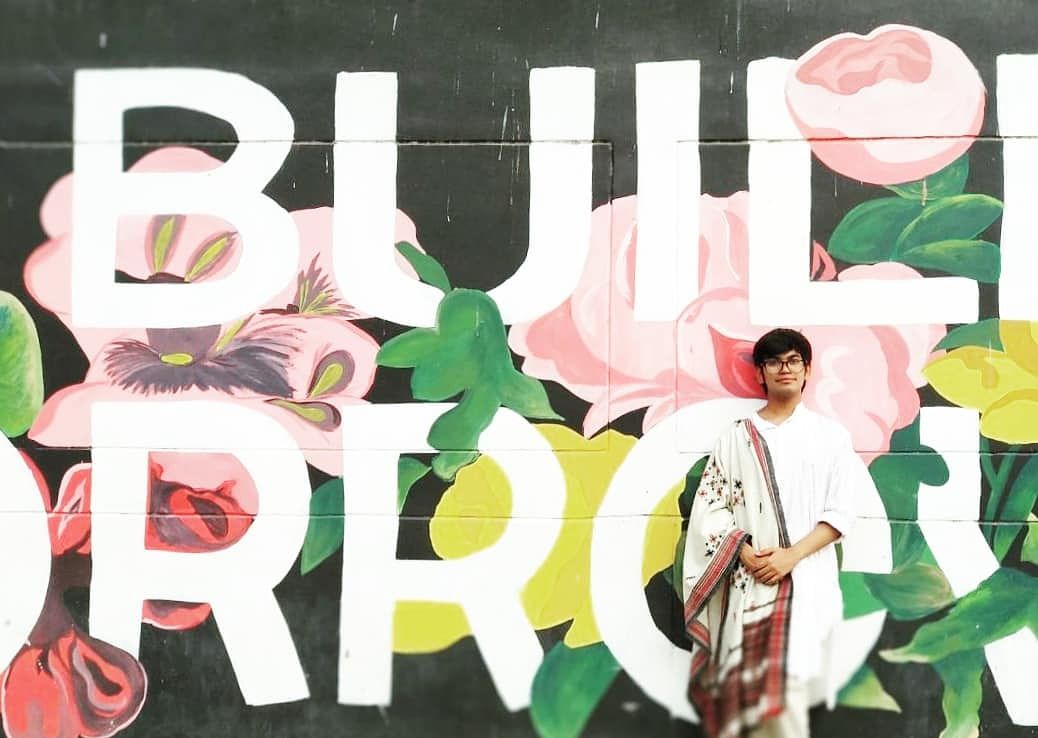Posted by Rishi Raj Vyas
Being sixteen isn’t that easy sometimes, especially in a “democracy” like India. I came out “accidentally and forcefully” as gay in 2014 because somehow my neighbours thought that it was their job, as harbingers of liberty, to let my parents know how anti-national, unethical, uncultured I am, just because I am gay. They even recommended me to go to a doctor to get a cure for “gay ka bimari”.
As a queer person I feel that being gay was somehow more comfortable for me than being a Dalit. Being Dalit even in metro cities is still visibly a taboo topic. We are forced to take up and believe in stereotypes and prejudice that our elder generation believes in, just because there are only very few people who come out as either gay or Dalit. The number decreases further when we talk about openly queer Dalit persons. Due to such deplorable representation, the stereotypes follow us within and outside the queer spaces. I was genuinely afraid to come out as Dalit. Somehow even being a rape survivor was more easier for me than reflecting this “secretive” part of my identity.
As a queer person I feel that being gay was somehow more comfortable for me than being a Dalit.
I “came out” as a Dalit three months ago. I got a mixed reaction but I was very often questioned about the need of coming out as Dalit while I was already out as gay. But the fact of the matter is that it was extremely vital to have done that because the current queer movement is dominated by upper caste gay men and it is important that people know that I am here too. My simple answer to their curiosity is representation.
As a person I believe in the power of words, to bring a change it is really important to represent, if you are capable to do so and if not then being in closet doesn’t make you an inferior citizen anyhow. Speaking out, talking and representing will not only help in abolishing misconceptions and stereotypes but will also help those who are still struggling with their identity. In practical life we have very few to absolutely zero open gay, Dalit or adivasi persons around us. While being in closet too one can raise their voice against unjust, my partner has been a great help in my self acceptance journey. He always taught me that tags are just for clothes and being Dalit won’t make you inferior as a person but you should rather feel confident in your own natural skin.
It was important for me to come out as Queer and Dalit because representation matters.
I believe that the current queer moment is scattered among individuals who are concerned about either their own rights rather than saving the lives of minorities in general. Supporting the Dalit movement, being a feminist, being a supporter of sex workers, being a supporter of threatened racial, religious, linguistic and cultural minorities will make them a part of movement and will give them a space to express their views and opinions. That’s how the LGBTQIA+ took a major boost in the United Kingdom, when the support of LGBT individuals towards the miners was recognized by the labor party which later came into power.
The queer movement in contemporary India is on a major boost. From what we were back in 1999 when the first pride took place in Kolkata with 11 individuals to thousands of allies and community members flocking the streets of Delhi. It’s been a long and a very hard journey but small bricks are creating the adobe of equality. With progression in the ways of the judiciary, individuals and influencers across India coming out as members or allies challenging the heternormative structure – there is much more awareness than there probably ever has been.
Also read: Being A Queer Dalit And The Assertion Of Dalit Identities In Pride Marches
Rishi is a 17 year old student who is vocal about his rights as an out and proud queer kid. He is spiritual and writes Urdu poetry. Follow him on Instagram.
This article was originally published on Nazariya LGBT and has been re-published here with permission.
About the author(s)
Guest Writers are writers who occasionally write on FII.




